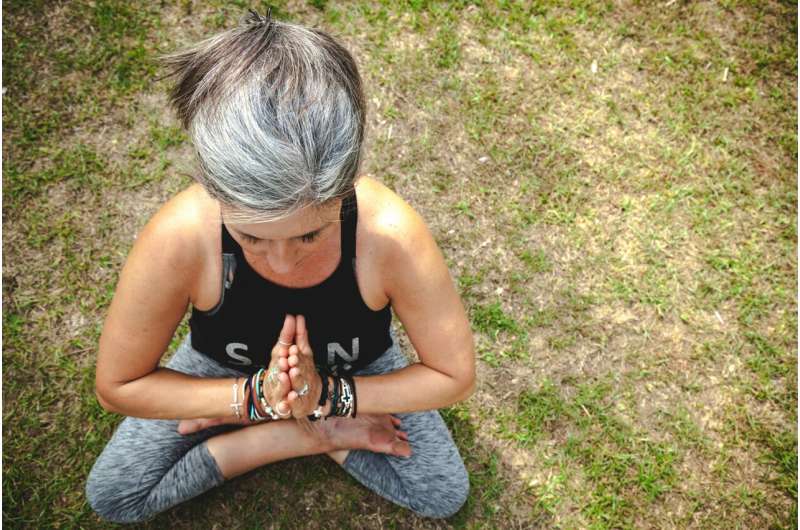This article has been reviewed according to Science X's editorial process and policies. Editors have highlighted the following attributes while ensuring the content's credibility:
fact-checked
peer-reviewed publication
trusted source
proofread
New research explores the complex relationship between age, appearance and health

As we age, does our physical appearance impact our physical and mental health? That question is at the core of research recently published in the journal Psychology and Aging.
The study, led by Julie Ober Allen, an assistant professor of health promotion at the University of Oklahoma, found that 59% of adults in a nationally representative poll of Americans aged 50 to 80 believe they look younger than other people their age. These respondents reported more positive experiences related to age, such as being asked for advice and wisdom and having a strong sense of purpose. However, those who reported feeling older than others their age experienced more negative interactions. Allen's research has shown that ageism, or stereotypes, prejudices and discrimination based on someone's age, can be a source of chronic stress and harmful to health.
"Ageism is a form of discrimination that often manifests as micro-aggressions," Allen said. "Telling an older person that they look good for their age or assuming they can't operate technology can actually cause them to have a fight-or-flight stress response. Sometimes they engage in coping behaviors to deal with the stress—eating candy or smoking a cigarette, for example—behaviors associated with negative health outcomes."
In this study, Allen's team explores how people use appearance as a proxy for age. The more physical traits someone has that associate them with traditional stereotypes of old age, such as gray hair or wrinkles, the more likely others may stereotype or discriminate against them. This tendency, she suggests, stems from American culture's emphasis on youth and specific beauty standards.
"We asked people how much time and energy they spend trying to look younger. It's a tricky question because it tends to activate some of those stereotypes," she said. "35% of participants told us they invested time and money in these endeavors. Interestingly, these people reported both more positive and more negative experiences of aging within broader society. Perhaps those who tried and succeeded in looking younger experienced less discrimination. However, those same individuals may have also felt more anxious and uncomfortable with their aging appearance."
Allen points out that ageism, unlike racism, sexism or homophobia, is frequently overlooked and more accepted in society. Her research shows that both men and women report comparable exposure to ageism and that older adults across all racial and ethnic backgrounds and in all parts of the U.S. are affected.
"Stereotypically, people talk about women being more affected by ageism; the math does not support that," she said. "The lived experience for men is likely different than it is for women, but they're still affected."
Ultimately, the results of Allen's research are clear: People who identify themselves as looking younger have more positive experiences and experience better mental and physical health outcomes. Additionally, people who look more youthful report less age-based discrimination. Looking young, however, may not be the only thing aging Americans should focus on.
"We should be emphasizing healthy behaviors, many of which have implications for aging and appearance. If you exercise, maintain a healthy weight and don't smoke, you will look younger as you age. Appearance essentially becomes a secondary outcome," she said. "By engaging in healthy behaviors, you will be healthier, have a better quality of life, and will have fewer functional limitations."
Julie Ober Allen collaborated on this research with Marshall K. Cheney and Daniel Larson from the University of Oklahoma and Valerie Moïse from the OU Health Sciences Center, as well as Jeffrey Kullgren, Erica Solway, Preeti N. Malani and Dianne Singer from the University of Michigan.
More information: Julie Ober Allen et al, How old do I look? Aging appearance and experiences of aging among U.S. adults ages 50–80., Psychology and Aging (2024). DOI: 10.1037/pag0000800



















